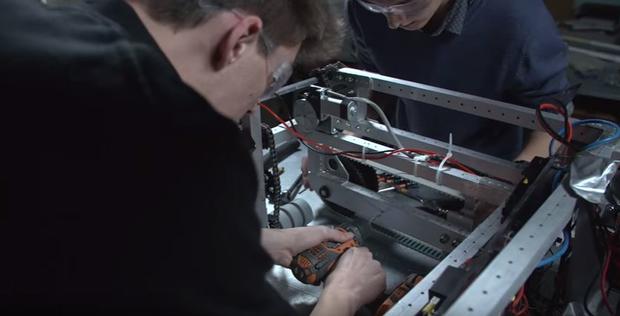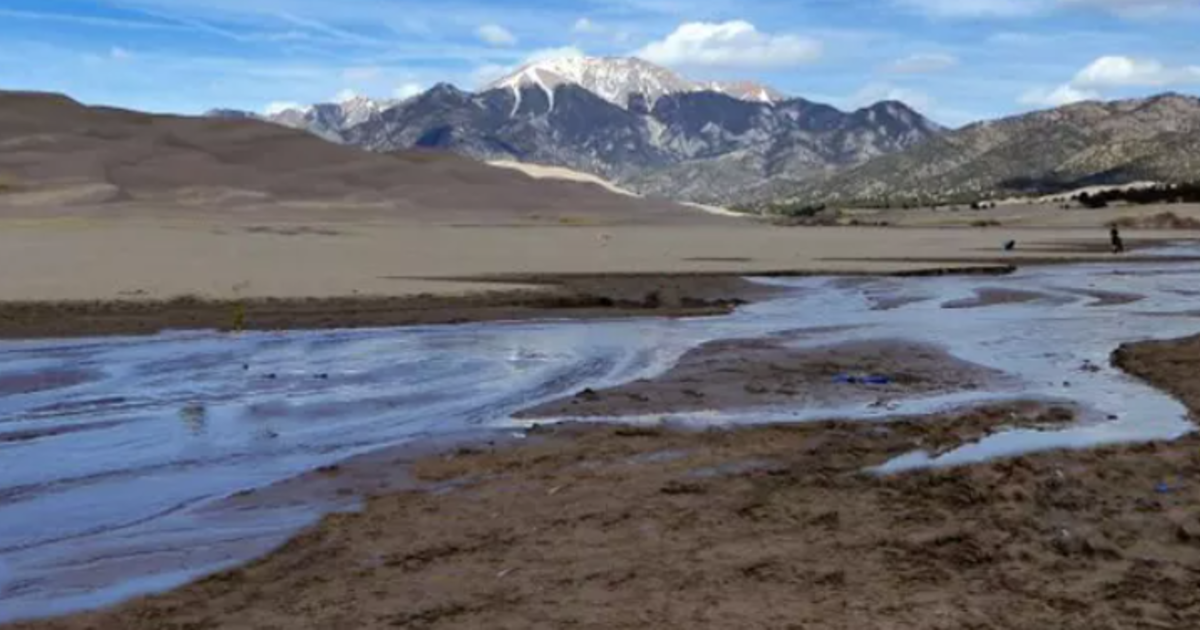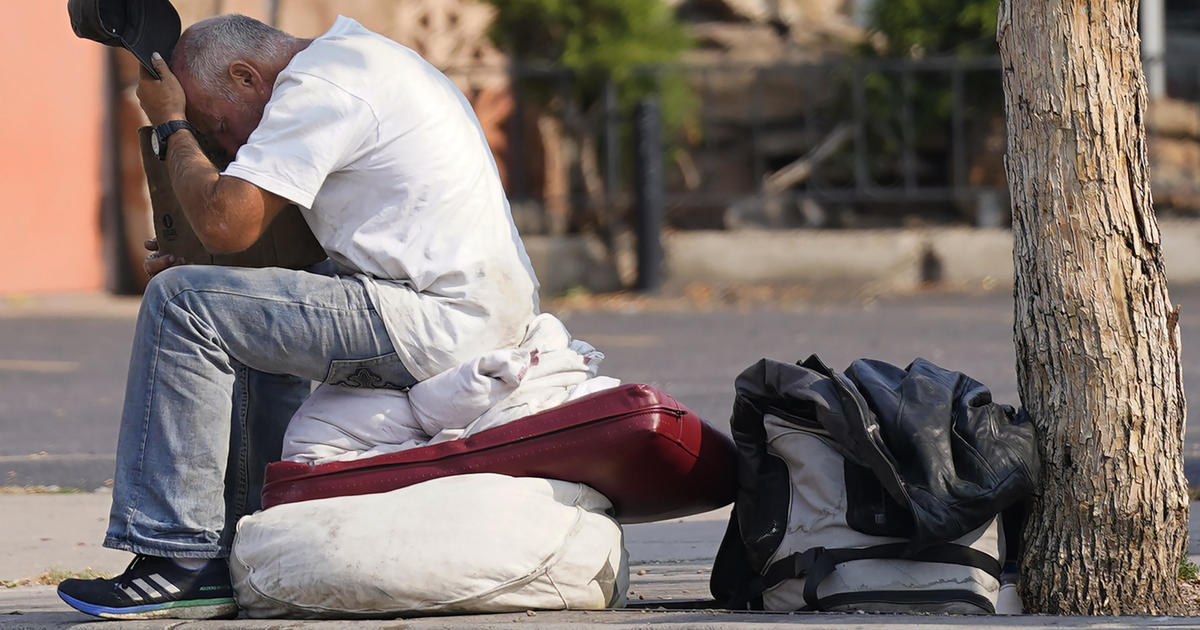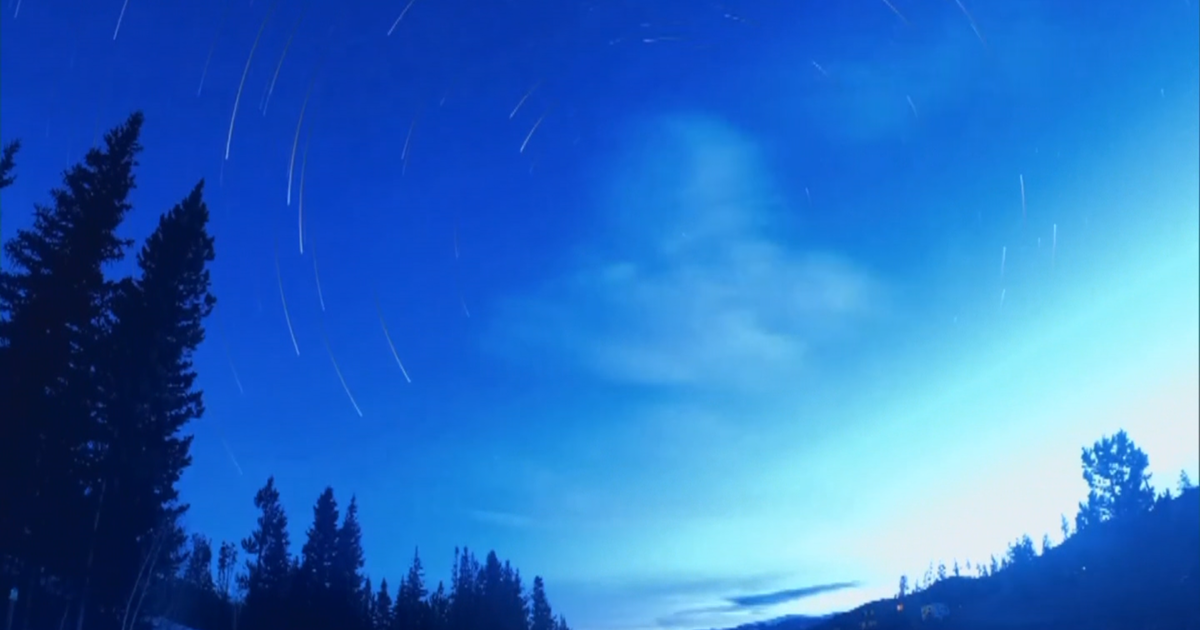Colorado Students Build Drone For Rwandan National Park
DENVER (AP) - Rangers protecting the lions, elephants and leopards of Rwanda's Akagera National Park often patrol on foot, and venture only with difficulty into its swamps to keep an eye on rare birds.
A Denver teen who visited the park in northeast Rwanda last summer had an idea he thought would make the rangers' job easier. He and a friend would build a drone to donate to Akagera.
Akagera's rangers "deal with a lot more difficult problems than we do, and with very limited resources," Max Alger-Meyer said, speaking in a robotics lab at the Denver School of Science and Technology in the northeast neighborhood of Stapleton.
Once home from his trip organized by a Denver-based international development nonprofit, Alger-Meyer applied the lessons he had learned in frugality and ingenuity. He and Nathan Lepore, both 18, made the drone themselves because that was cheaper than simply buying one, and the exercise was a hands-on learning experience. Lepore has been accepted into Stanford's mechanical engineering program. Alger-Meyer will enter the aeronautical engineering at the University of Colorado next year.
In a telephone interview from his park, Akagera manager Jes Gruner said he was surprised when got an email from Denver. He'd heard before from people who wanted to sell him a drone, but never from anyone who wanted to give him one. Gruner said the donation will be useful for spotting brushfires. In addition, the drone will allow Akagera to do surveys more often of such animals as shoebill storks, endangered birds that inhabit swamps that are difficult for rangers to navigate.
The park now brings in a helicopter for animal counts, "but it's incredibly expensive. We only do that every two years," Gruner said. "We don't have the luxury of playing with money."
Alger-Meyer, who would like to go into business himself one day, values the experience of putting in hours of research to be sure drone parts ordered were right. He and Lepore didn't want to waste donor money. Most of the just over $1,000 they spent on the drone came from friends and family.
Alger-Meyer and Lepore were putting the finishing touches on the drone as their school year ended. They hope to go to Rwanda this summer to deliver it and train rangers to use it.
The Denver teens knew as they designed their drone that park rangers would have to improvise fixes if anything goes wrong. The frame is assembled from standard-issue aluminum tubing anyone with a drill and some screws could easily replace.
Colby Loucks, senior director of the wildlife conservation program at World Wildlife Fund in the United States, applauded the teens' thinking.
"In the conservation space, people have a bad habit of getting really excited about technology solutions - and then trying to find problems that fit those solutions. You can end up with a bunch of expensive equipment that no one knows how to use, that's broken and no one knows how to repair, or that sits around because no one asked for it in the first place."
Cathy Dean, director of London-based Save the Rhino International, said she often hears suggestions that drones be deployed for hunting poachers. That would require expensive night-vision equipment and assumes park security would be able to deploy before the intruders slipped away. Instead, rangers around the world have told Dean drones are more appropriate for the uses Rwanda park manager Gruner envisions.
Neither Dean's nor Loucks's organizations are involved with the drone project for Akegera.
In 2010, the Rwandan government entered into a joint-venture with Gruner's African Parks, a non-profit working across Africa. Since then, tourist visits to Akagera have doubled to more than 32,000, Gruner said. Lions were re-introduced last year. Gruner, who plans to soon bring back black rhinos as well, said security has improved because of new fencing, a larger and better trained ranger force and improved cooperation with nearby communities.
Bas Huijbregts, an African species expert with WWF, said African Parks got Akagera "back on its feet."
Rebel and government forces sometimes fought in national parks during Rwanda's civil war a generation ago, and refugees competed with animals for habitat. Poaching also took a toll. Despite concerns about their commitment to democracy that have implications for long-term stability, Rwanda's leaders have been credited with fostering economic growth since 1994, when a rebel movement ended a genocide by Hutu extremists in which an estimated 800,000 Tutsis and moderate Hutus were killed.
Alger-Meyer visited Rwanda on a trip organized by the Global Livingston Institute, founded in 2009 by Jamie Van Leeuwen, whose day job is senior adviser to Colorado's governor. Van Leeuwen wants the Americans, Rwandans and Ugandans he brings together to consider the problems they share and what they can learn from each other about finding solutions.
Alger-Meyer said he had not been particularly interested in conservation before meeting the Rwandans. He returned with a new perspective.
"Seeing how (rangers) operated such a vast park with limited resources, that kind of problem solving they do intrigues me."
- By DONNA BRYSON, AP Writer
(© Copyright 2016 The Associated Press. All Rights Reserved. This material may not be published, broadcast, rewritten or redistributed.)




